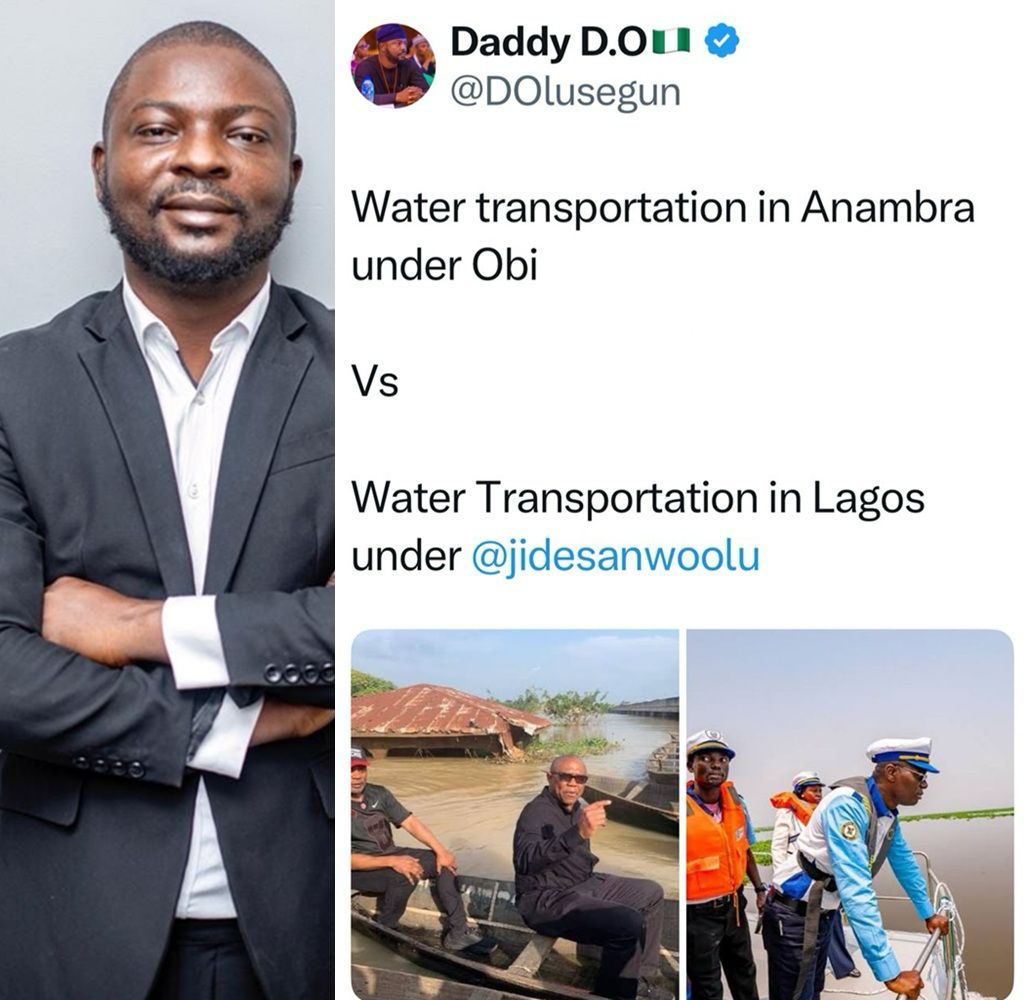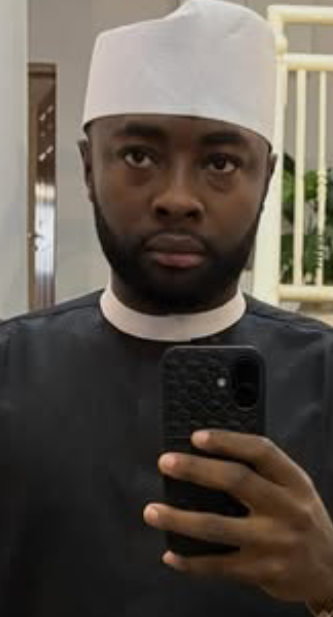
Segun Dada Sparks Controversy as He Mocks Peter Obi’s Legacy While Applauding Sanwo-Olu’s Water Transport Achievements

A political storm is brewing online as Segun Dada, a presidential aide in the Bola Tinubu administration, stirred heated reactions after taunting former Anambra State Governor and Labour Party presidential candidate Peter Obi in a post that appeared to mock Obi’s achievements in water transportation while praising Lagos State Governor Babajide Sanwo-Olu. The now-viral jab has ignited fresh tensions between supporters of the ruling All Progressives Congress (APC) and Obi’s loyal base, known widely as the ‘Obidients’.
In what many have described as a calculated dig, Dada took to social media to post a video showcasing modern water transport developments in Lagos under Sanwo-Olu’s administration. The video highlighted well-structured jetties, standard boats, safety procedures, and the growing Lagos Ferry Services, known as LAGFERRY. But it was not the video itself that captured national attention—it was the caption that accompanied it. In a sharply worded comparison, Dada wrote, “Compare this to Peter Obi’s Anambra, where water transport involved villagers paddling canoes without life jackets. But social media told you he was the best governor alive.”
The comment triggered an instant backlash from Obi’s supporters and neutral observers alike, many accusing Dada of peddling misinformation, distorting context, and reducing a complex development issue to an oversimplified political jibe. Critics were quick to point out that Anambra State, being largely landlocked with limited navigable waterways, does not share the same geographical advantages as Lagos, a coastal state with natural access to extensive water routes that make water transport more feasible and essential.
The comparison between Lagos and Anambra was seen by many as disingenuous and intellectually lazy, but Dada’s defenders insisted he was merely highlighting what they believe to be the exaggerated narrative around Peter Obi’s tenure. Some went further to argue that Obi’s record, though praised for fiscal prudence and investment in education and health, fell short in infrastructure and innovation. However, others saw the presidential aide’s move as unnecessarily antagonistic and unbecoming of someone holding a public position.
While political banter is hardly new in Nigeria’s volatile online space, Dada’s comment struck a nerve, largely because of the wider political context it represents. Since the 2023 presidential elections, tensions have simmered between supporters of Peter Obi and the current administration. Obi, who ran on a message of transparency, youth engagement, and a new political direction, amassed massive support across Nigeria, especially among the youth and middle class. His performance in the elections defied expectations, and his movement continues to represent a potent force in Nigerian politics.
In contrast, the Tinubu-led government has come under pressure in its early months, dealing with economic woes, fuel subsidy controversies, and widespread discontent over inflation and hardship. In such a climate, every comment from a government aide is interpreted through the lens of political rivalry, and Dada’s remarks were no exception. Many saw the post as an intentional effort to shift attention from current challenges and score political points at Obi’s expense.
Peter Obi himself has remained silent in the face of the insult, consistent with his usual approach of not responding directly to taunts or political baiting. However, his supporters did not hold back. Within hours, the hashtag #DefendPeterObi began trending, with many sharing images of projects Obi completed in Anambra, including road constructions, schools, hospitals, and markets. Several users also revisited the former governor’s interviews and speeches in which he emphasized investment in human capital and prudent governance over flashy projects.
Meanwhile, defenders of Governor Sanwo-Olu capitalized on the moment to amplify his achievements in transforming Lagos’s water transport system. Under his leadership, LAGFERRY has expanded, new jetties have been commissioned, and boat usage as a mode of daily commuting has increased, especially in areas previously plagued by traffic congestion. For Lagos, a city battling gridlock and overpopulation, water transport is not just a fancy option—it’s a necessity. And in that regard, Sanwo-Olu has made visible strides.
But even as Dada's supporters trumpet Lagos’s water transport success, others have questioned why a legitimate infrastructural achievement needs to be weaponized against another politician. They argue that the spirit of governance should be about collaboration and inspiration, not competition and ridicule, especially when comparing states with vastly different geographical and economic realities.
The political subtext of the attack cannot be ignored either. Dada, a known Tinubu loyalist and frequent critic of the opposition, has often used his platform to push back against the ‘Obidient’ narrative that continues to challenge the legitimacy and performance of the current administration. His latest comments are being viewed not merely as a defense of Sanwo-Olu but as part of a broader effort to undermine Peter Obi’s political capital ahead of future elections.
In the midst of the controversy, observers are calling for more maturity in political discourse, especially from those in power. Many Nigerians, already grappling with tough economic conditions, have expressed frustration that government officials are prioritizing political pettiness over governance and service delivery. For them, the issue is bigger than Obi versus Sanwo-Olu—it is about what kind of leadership the country is promoting and the tone being set for national conversations.
As the debate rages on, the episode serves as a reminder that in today’s Nigeria, political statements, no matter how seemingly minor, carry enormous weight. The digital age has democratized political discourse, and while that has allowed for more engagement, it has also fueled a culture of division, performative outrage, and tribalistic loyalty.
For now, Segun Dada remains unapologetic, continuing to post and engage critics with characteristic boldness. Whether his remarks will fade away as just another episode in Nigeria’s never-ending political drama or leave a lasting impact on the conversation around responsible governance remains to be seen. What is certain, however, is that in a country where every word from the corridors of power is scrutinized, aides and officials must realize that the people are watching, not just their actions, but their words—and those words matter.


